| Listing 1 - 10 of 24 | << page >> |
Sort by
|
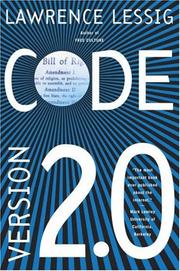
ISBN: 9780465039142 0465039146 Year: 2006 Publisher: New York : Basic Books,
Abstract | Keywords | Export | Availability | Bookmark
 Loading...
Loading...Choose an application
- Reference Manager
- EndNote
- RefWorks (Direct export to RefWorks)
"Now available for the first time in the UK, this is the "alarming and impassioned" book on how the Internet is redefining constitutional law. This updated edition is the first popular book revised online by its readers" - "New York Times". There's a common belief that cyberspace cannot be regulated - that is, its very essence is immune from the government's (or anyone else's) control. "Code", first published in 2000, argues that this belief is wrong. It is not in the nature of cyberspace to be unregulable; cyberspace has no "nature". It only has code - the software and hardware that makes cyberspace what it is. That code can create a place of freedom - as the original architecture of the Net did - or a place of oppressive control. Under the influence of commerce, cyberspace is becoming a highly regulable space, where behaviour is much more tightly controlled than in real space. But that's not inevitable either. We can - we must - choose what kind of cyberspace we want and what freedoms we will guarantee. These choices are all about architecture: about what kind of code will govern cyberspace, and who will control it. In this realm, code is the most significant for of law, and it is up to lawyers, policymakers, and especially citizens to decide what values that code embodies. Since its original publication, this seminal book has earned the status of a minor classic. This second edition, or Version 2.0, has been prepared through the author's wiki, a web site that allows readers to edit the text, making this the first reader-edited revision of a popular book.
Computer networks --- Information superhighway --- Internet. --- Cyberspace. --- Réseaux d'ordinateurs --- Autoroutes électroniques --- Internet --- Cyberespace --- Law and legislation --- Droit --- Réseaux d'ordinateurs --- Autoroutes électroniques
ISBN: 0375726446 0375505784 9780375505782 9780375726446 Year: 2001 Publisher: New York (N.Y.) Random House
Abstract | Keywords | Export | Availability | Bookmark
 Loading...
Loading...Choose an application
- Reference Manager
- EndNote
- RefWorks (Direct export to RefWorks)
In The future of ideas, Lawrence Lessig explains how the Internet revolution has produced a counterrevolution of potentially devastating power and effect. Creativity once flourished because the Net protected a commons on which innovators could experiment. But now, manipulating the law for their own purposes, corporations have established themselves as virtual gatekeepers of the Net while Congress, in the pockets of media magnates, has rewritten copyright and patent laws to stifle creativity and progress. Lessig weaves the history of technology and its relevant laws to make a lucid and accessible case to protect the sanctity of intellectual freedom. He shows how the door to a future of ideas is being shut just as technology is creating extraordinary possibilities that have implications for all of us.
Intellectual property --- Copyright and electronic data processing --- Internet --- Information society --- Law and legislation --- Copyright infringement --- 316.42 --- 621.39 --- IP (Intellectual property) --- Proprietary rights --- Rights, Proprietary --- Intangible property --- Sociology --- Information superhighway --- Electronic data processing and copyright --- Fair use (Copyright) --- 316.42 Social change. Sociale ontwikkeling. Sociale veranderingen. Modernisering. Evolutie .Sociale revolutie. Modernisme --- Social change. Sociale ontwikkeling. Sociale veranderingen. Modernisering. Evolutie .Sociale revolutie. Modernisme --- 621.39 Telecommunication. Telecontrol --- Telecommunication. Telecontrol --- Cyberspace --- Propriété intellectuelle --- Droit d'auteur et informatique --- Société informatisée --- Droit --- 54.99 computer science: other. --- Auteursrecht. --- Copyright and electronic data processing. --- Databescherming. --- Datenverarbeitung. --- Droit d'auteur et informatique. --- Geistiges Eigentum. --- Informatiemaatschappij. --- Information society. --- Informationsgesellschaft. --- Intellectual Property. --- Intellectual property. --- Internet. --- Propriété intellectuelle. --- Société informatisée. --- Urheberrecht. --- intellectual property. --- Droit. --- Law and legislation. --- Internet - Law and legislation --- INTERNET --- CYBERSPACE --- DROITS D'AUTEUR --- NOUVELLES TECHNOLOGIES --- ASPECTS JURIDIQUES
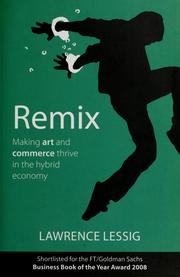
ISBN: 1408113473 1408113937 9781408113479 Year: 2008 Publisher: London, England : Bloomsbury,
Abstract | Keywords | Export | Availability | Bookmark
 Loading...
Loading...Choose an application
- Reference Manager
- EndNote
- RefWorks (Direct export to RefWorks)
Lawrence Lessig, the reigning authority on intellectual property in the Internet age, spotlights the newest and possibly the most harmful culture war-a war waged against our children and others who create and consume art. Copyright laws have ceased to perform their original, beneficial role: protecting artists' creations while allowing them to build on previous creative works. In fact, our system now criminalises those very actions. By embracing "read-write culture," which allows its users to create art as readily as they consume it, we can ensure that creators get the support-artistic, commer
Law. --- Copyright --- Economic aspects. --- Literary property --- Property, Literary --- Intangible property --- Intellectual property --- Anti-copyright movement --- Authors and publishers --- Book registration, National --- Patent laws and legislation --- Acts, Legislative --- Enactments, Legislative --- Laws (Statutes) --- Legislative acts --- Legislative enactments --- Jurisprudence --- Legislation --- Law and legislation --- Marché de l'art --- Internet --- Politique économique
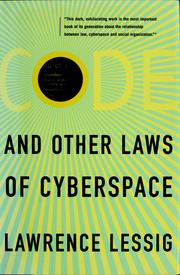
ISBN: 046503912X 0465039138 9780465039135 Year: 1999 Publisher: New York (N.Y.): Basic Books
Abstract | Keywords | Export | Availability | Bookmark
 Loading...
Loading...Choose an application
- Reference Manager
- EndNote
- RefWorks (Direct export to RefWorks)
Autoroutes électroniques --- Autoroutes electroniques --- Droit a la vie privee --- Autoroutes électroniques --- Cyberespace --- Liberté d'information --- Ordinateurs et civilisation --- Commerce électronique --- Aspect social --- Information superhighway --- Cyberspace --- Freedom of information --- Computers and civilization --- Privacy, Right of --- Electronic commerce --- Liberté d'information --- Droit à la vie privée --- Commerce électronique --- Social aspects --- Autoroutes electroniques - Aspect social --- Cyberespace - Aspect social
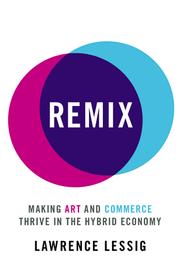
ISBN: 9781594201721 9780143116134 0143116134 Year: 2008 Publisher: New York (N.Y.) Penguin Books
Abstract | Keywords | Export | Availability | Bookmark
 Loading...
Loading...Choose an application
- Reference Manager
- EndNote
- RefWorks (Direct export to RefWorks)
Copyright --- Copyright and electronic data processing --- Cultural industries --- Economic aspects --- Neighboring rights --- Law and legislation --- Copyright - Economic aspects - United States --- Copyright - Neighboring rights - Economic aspects - United States --- Copyright and electronic data processing - Economic aspects - United States --- Cultural industries - Law and legislation - Economic aspects - United States
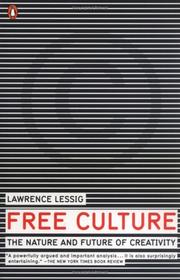
ISBN: 0143034650 9780143034650 1594200068 9781594200069 0786547987 Year: 2005 Publisher: New York : Penguin Books,
Abstract | Keywords | Export | Availability | Bookmark
 Loading...
Loading...Choose an application
- Reference Manager
- EndNote
- RefWorks (Direct export to RefWorks)
From the author of "The Future of Ideas" comes "an entertaining and important look at the past and future of the cold war between the media industry and new technologies"
Intellectual property --- Mass media --- Technological innovations --- Art --- Intellectual Property Law - U.S. --- Law - U.S. --- Law, Politics & Government --- Art, Occidental --- Art, Visual --- Art, Western (Western countries) --- Arts, Fine --- Arts, Visual --- Fine arts --- Iconography --- Occidental art --- Visual arts --- Western art (Western countries) --- Arts --- Aesthetics --- Art, Primitive --- Intellectual property - United States --- Mass media - United States --- Technological innovations - United States --- Art - United States --- PROPRIETE INTELLECTUELLE --- MASS MEDIA --- INNOVATION TECHNOLOGIQUE --- ART --- ETATS-UNIS --- Propriété intellectuelle --- Médias --- Innovations --- États-Unis --- Propriété intellectuelle --- Médias --- États-Unis
Book
ISBN: 9780190945664 0190945664 Year: 2019 Publisher: New York, NY: Oxford university press,
Abstract | Keywords | Export | Availability | Bookmark
 Loading...
Loading...Choose an application
- Reference Manager
- EndNote
- RefWorks (Direct export to RefWorks)
"The fundamental fact about our Constitution is that it is old--the oldest written constitution in the world. The fundamental challenge for interpreters of the Constitution is how to read that old document over time. In Fidelity & Constraint, legal scholar Lawrence Lessig explains that one of the most basic approaches to interpreting the constitution is the process of translation. Indeed, some of the most significant shifts in constitutional doctrine are products of the evolution over time of the translation process. In every new era, judges understand their translations as instances of "interpretive fidelity," framed within each new temporal context. Yet, as Lessig also argues, there is a repeatedly occurring countermove that upends the process of translation. Throughout American history, there has been a second fidelity in addition to interpretive fidelity: what Lessig calls "fidelity to role." In each of the cycles of translation that he describes, the role of the judge--the ultimate translator--has evolved too. Old ways of interpreting the text now become illegitimate because they do not match up with the judge's perceived role. And when that conflict occurs, the practice of judges within our tradition has been to follow the guidance of a fidelity to role. Ultimately, Lessig not only shows us how important the concept of translation is to constitutional interpretation, but also exposes the institutional limits on this practice. The first work of both constitutional and foundational theory by one of America's leading legal minds, Fidelity & Constraint maps strategies that both help judges understand the fundamental conflict at the heart of interpretation whenever it arises and work around the limits it inevitably creates"
Etats-Unis --- Constitutional law --- Law
Book
ISBN: 1849662509 Year: 2008 Publisher: London : Bloomsbury,
Abstract | Keywords | Export | Availability | Bookmark
 Loading...
Loading...Choose an application
- Reference Manager
- EndNote
- RefWorks (Direct export to RefWorks)
"Lawrence Lessig, the reigning authority on intellectual property in the Internet age, spotlights the newest and possibly the most harmful culture war-a war waged against our children and others who create and consume art. Copyright laws have ceased to perform their original, beneficial role: protecting artists' creations while allowing them to build on previous creative works. In fact, our system now criminalises those very actions. By embracing "read-write culture," which allows its users to create art as readily as they consume it, we can ensure that creators get the support-artistic, commercial, and ethical-that they deserve and need. Indeed, we can already see glimmers of a new hybrid economy that combines the profit motives of traditional business with the "sharing economy" evident in such websites as Wikipedia and YouTube. The hybrid economy will become ever more prominent in every creative realm-from news to music-and Lessig shows how we can and should use it to benefit those who make and consume culture. Remix is an urgent, eloquent plea to end a war that harms our children and other intrepid creative users of new technologies. It also offers an inspiring vision of the post-war world where enormous opportunities await those who view art as a resource to be shared openly rather than a commodity to be hoarded."--Bloomsbury Publishing.
Copyright --- Copyright and electronic data processing --- Cultural industries --- Economic aspects --- Law and legislation
Book
ISBN: 9780446576437 Year: 2011 Publisher: London Twelve
Abstract | Keywords | Export | Availability | Bookmark
 Loading...
Loading...Choose an application
- Reference Manager
- EndNote
- RefWorks (Direct export to RefWorks)
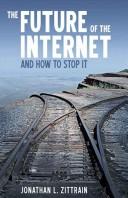
ISBN: 9780300124873 0300124872 9780300144734 0300144733 9780300145342 0300145349 9780141951812 0141951818 1282089528 9781282089525 0300144776 9780300144772 9780300151244 0300151241 9781846140143 1846140145 Year: 2008 Publisher: New Haven Yale university press
Abstract | Keywords | Export | Availability | Bookmark
 Loading...
Loading...Choose an application
- Reference Manager
- EndNote
- RefWorks (Direct export to RefWorks)
In this urgent wake-up call, Jonathan Zittrain shows how the Internet is on a path towards ruin - a victim of its own success - and how we have a chance to avoid this rapidly approaching future. The Internet is so ubiquitous that we take it for granted. But it is surprisingly delicate, and under threat. Just what is at stake? Zittrain gives a fascinating history of the rise of the PC and Internet and reveals how their 'generativity', their capacity to welcome unfiltered contributions from anyone, has driven them. He argues that generativity is the greatest benefit to us as users of the Internet: we are free to connect with other people and to reap the rewards of unanticipated opportunities. Ever-increasing security threats, however - in the form of viruses, spyware and invasions of privacy - are now driving us to a new form of 'tethered' appliances, unable to be modified by anyone except their vendors, such as iPods, iPhones, Xboxes and TIVos, which are set to eclipse the PC. Tethered appliances have unusual and worrisome features. They have already been used in remarkable but little-known ways: car GPS systems have been reconfigured to eavesdrop on their owners, and digital video recorders have been ordered to self-destruct in viewers' homes. New Web 2.0 platforms like Google mash-ups and Facebook are rightly celebrated - but their applications, even those written by outsiders, can similarly be monitored and controlled from a central source. Jonathan Zittrain argues that the generative Internet must be preserved for everybody. And he shows us how, through new technologies and behaviour, we can do it.
Computer architecture. Operating systems --- Internet --- Social aspects --- Security measures --- #SBIB:309H1710 --- #SBIB:309H1713 --- DARPA Internet --- Internet (Computer network) --- Wide area networks (Computer networks) --- World Wide Web --- Telematica, algemene werken --- Mediatechnologie: nieuwe toepassingen (abonnee-televisie, electronic mail, desk top publishing, virtuele realiteit...) --- Internet - Social aspects --- Internet - Security measures
| Listing 1 - 10 of 24 | << page >> |
Sort by
|

 Search
Search Feedback
Feedback About UniCat
About UniCat  Help
Help News
News